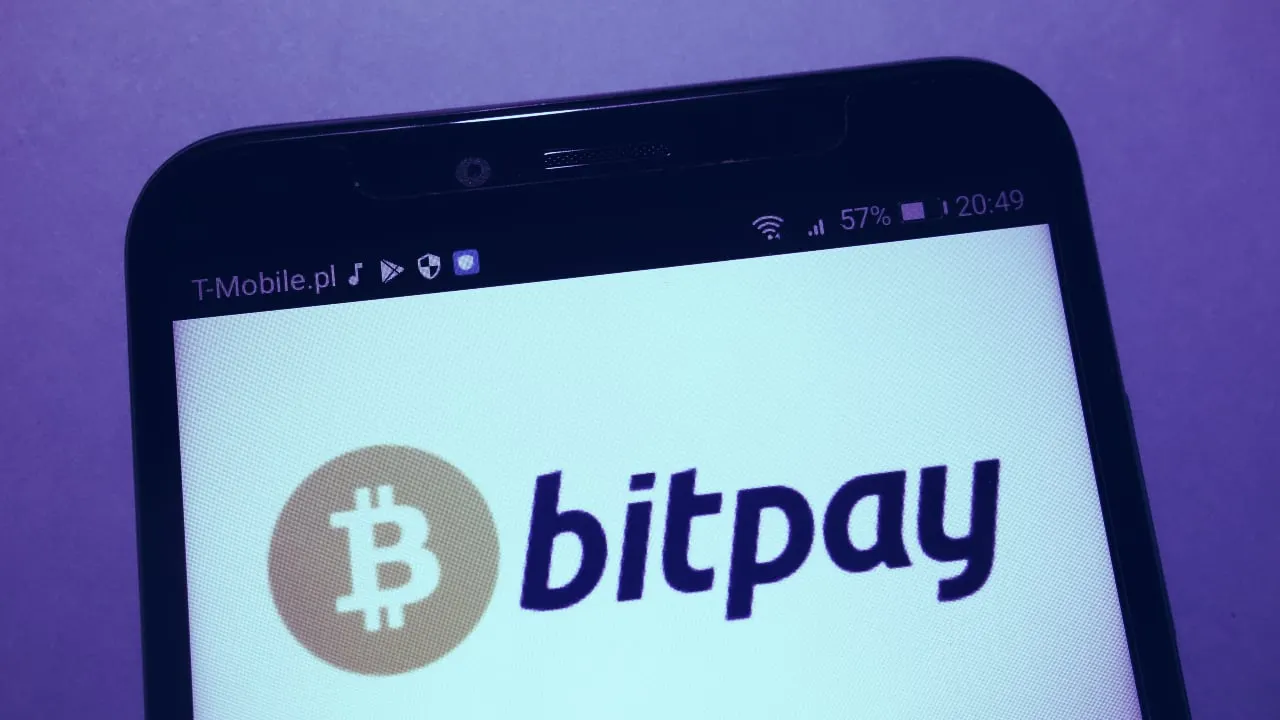Bitcoin isn’t a particularly good medium of exchange, say its critics—even among cryptocurrencies, it’s difficult to spend on everyday purchases. BitPay’s latest partnership with a point of sale (PoS) provider Poynt aims to fix that.
The blockchain payments service Bitpay announced on Tuesday a partnership with the open-source commerce platform Poynt, which will allow over 100,000 retailers to accept Bitcoin and cryptocurrency payments.
So what does that mean for the future of Bitcoin—the world’s largest and most popular cryptocurrency by market cap? Big things, according to BitPay CMO Bill Zielke.
“BitPay expects to see more brick and mortar establishments offer Bitcoin and other cryptocurrencies as a method of payment,” Zielke told Decrypt. “Over the next year, BitPay expects to see more global main street businesses adopting cryptocurrency.”
BitPay’s partner on this quest, Poynt, bills itself as an “open operating system” that allows merchants and developers to integrate third-party apps. Over the last 12 months, Poynt surpassed $9 billion in gross payment volume, according to firm’s own figures. Meanwhile, BitPay, has processed “billions in cryptocurrency payments from organizations all around in over 200 countries and territories,” Zielke said.
This partnership, if successful, bodes well for the Bitcoin and cryptocurrency circular economy to grow as users look for ways to spend their crypto.
Nonetheless, other attempts at bringing crypto payments to mainstreet businesses offer a cautionary tale. One case is Pundi X, which had similar plans to outfit thousands of brick-and-mortar stores with crypto enabled PoS systems, but it turned out not many consumers were ready to pay with crypto.
Payment services also have to navigate growing regulatory challenges. Earlier this year Bitcoin payments startup Bottlepay shut its doors after the European Union introduced strict new regulations.
Another concern merchants might have is the volatility of Bitcoin and other cryptocurrencies, but services like BitPay aim to mitigate some of that stress—at least for vendors. “As a blockchain payment processor, BitPay verifies the funds and accepts the bitcoin on behalf of the organization. The organization never has to hold Bitcoin and is protected from any Bitcoin price volatility,” Zielke said.
Despite the challenges, payment services like BitPay will continue to try to disrupt a market dominated by institutional players like Visa and Mastercard.
Zielke is confident that those “main street businesses” are increasingly looking to make use of a more “modern way to pay.” Crypto, he said, provides these businesses with “lower costs, access to new customers, and the ability to send and receive payments anywhere in the world quickly and easily.”
If payments services like BitPay hope to attract main street, they might just have to wait until consumers are actually ready to use Bitcoin—or find a better way to incentivize its use.

